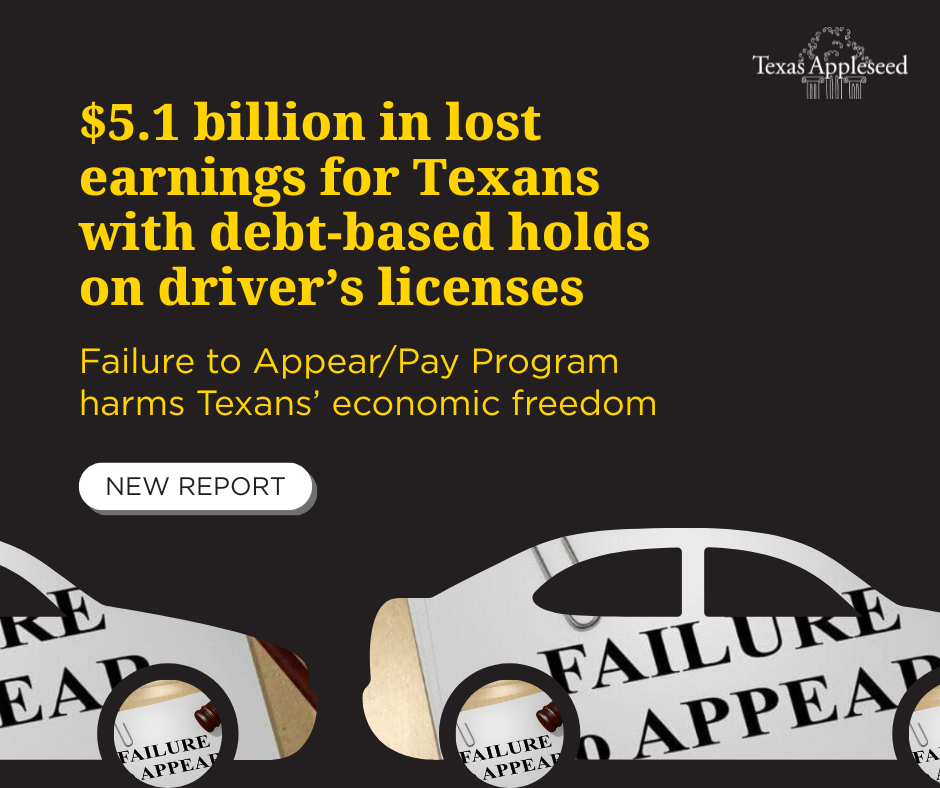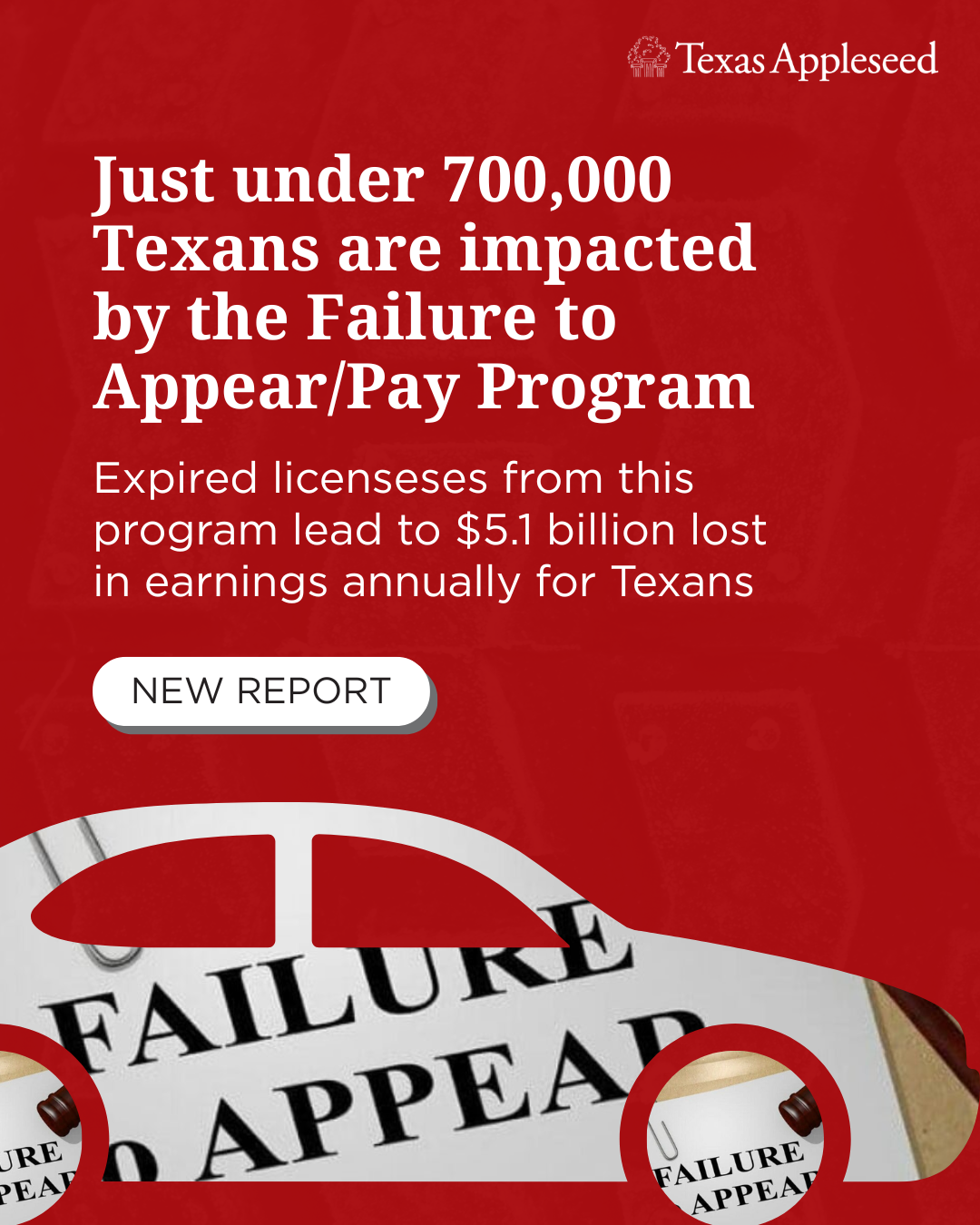Suggested Copy
If a driver can’t afford to pay the fines and fees for a traffic ticket, courts may use the Failure to Appear/Pay Program to place a hold on their ability to renew their driver’s license. Countless Texans fall into a cycle of debt under this program since they’re unable to drive to work to make the money to resolve their debt.


